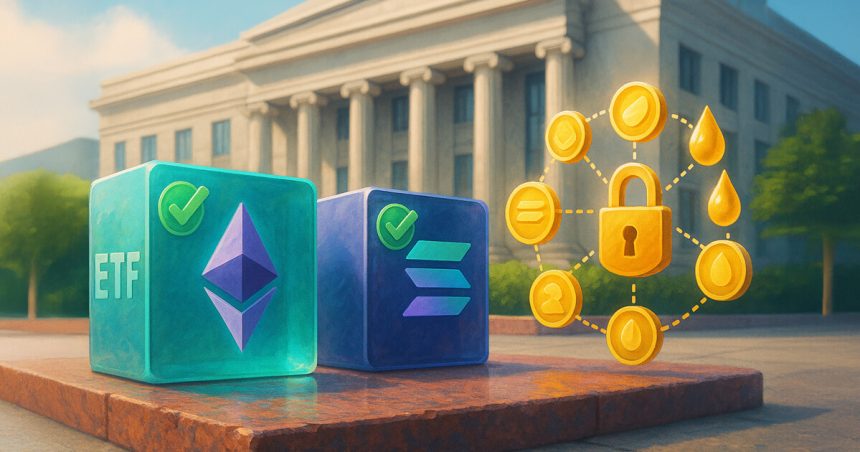Two of the most important digital asset managers, Bitwise and 21Shares, have made notable updates to their Ethereum and Solana ETF filings, doubtlessly altering the way in which crypto exchange-traded merchandise function in the US.
Based on amended S-1 statements filed with the U.S. Securities and Trade Fee (SEC), each issuers are at present addressing the potential of holding Ethereum and Solana holdings inside their funds.
If the modifications are accredited, these ETFs will be capable to earn staking rewards, the revenue earned by serving to to confirm transactions on the proof-of-stake blockchain. Till now, U.S.-listed crypto ETFs have been unable to take part in community consensus and have been restricted to passively proudly owning the underlying property.
The amended software, filed this week, comes after months of quiet lobbying by ETF issuers looking for readability on laws round staking revenue. Though the inclusion of this language doesn’t imply the SEC has accredited this characteristic, it does point out that the SEC is at the least contemplating the concept.
Analysts see this as an early signal that the SEC’s stance on staking could also be softening, particularly given the rising strain to permit ETFs to compete with on-chain yield alternatives out there to retail and institutional buyers abroad.
Affect of staking inside an ETF on ETH and SOL yields
For Ethereum, present staking rewards vary from 3% to 4%, whereas Solana rewards usually vary between 7% and eight% yearly. ETF administration charges for these funds are usually round 0.20% to 0.30%, which means the yield can cowl or exceed the fund’s charges if staking proceeds are distributed to holders.
Such modifications may change the way in which ETF issuers compete out there. Moderately than focusing solely on administration prices and liquidity, future funds can also compete on web yield, creating a brand new efficiency metric for buyers evaluating crypto ETFs.
Though the SEC has not but commented on these proposed amendments, the submitting means that staking might quickly transfer from the on-chain financial system to conventional monetary merchandise, bridging the hole between DeFi incentives and controlled funding automobiles.


